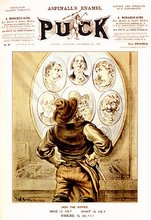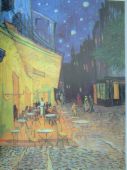I had a meeting with one lecturer, the initial purpose was to get feedback from him in order to improve my project paper. Alhamdulillah, I got a positive response from him, only few minor parts that has to be corrected. We continued to chat, and we came to this interesting issue: our used to be glamorous industry, PROTON, should it be protected or should the protectionism be removed which means sayonara for our car industry that has been operated since 1985, the year when I was born. The conclusion: If PROTON want to survive in the car industry they have to come up with a new research and development in order to produce high quality cars that meets the world standard requirement, but the revenue is not sufficient enought to allocate for the purpose. Why? Our market is so small, it's not big enough to achieve a high revenue or even to cover the cost of production, in economics they are not producing at the minimum average cost and this is a situation of inefficient output @ productive inefficiency. Logically, such a firm in a heavy industry that fails to achieve socially optimum output to cover the cost should be closed down in economics perspective. Below are the challenges that outweigh PROTON's efficiency and survival in the automotive industry:
1. Cars have become technologically very intensive. Gone are the days when they were basically electromechanical workhorses with some electronics like computer-controlled fuel injection or anti-lock brake systems (ABS) thrown in. More recently, they have become dependent upon lightweight materials, sensors and electronic - rather than electrical and hydraulic - systems
2. Several new models are introduced each year in these lucrative markets to keep customers coming back. Frequent model changes - there were nearly 1,100 different models in the US last year - have become feasible for the big groups by reducing the number of individual vehicle platforms – or the engine and chassis
3. The giant carmakers have also reduced their component costs through modularisation. The French suppliers association, FIEV, estimates components make up 53 per cent of the total costs of bringing a new car to market, a car being made up of 15,000 to 30,000 components. Modularisation of components involves a group of components being arranged closely together to make up a coherent unit such as brakes, steering and suspension. Such modules can be replaced independently and be used across many different models
4. Finally, Proton is drowning in a world of overcapacity. According to a 2002 report from the United Nations Economic and Social Commission for Asia and the Pacific, the world's annual productive capacity is 80 million cars whereas demand is under 60 million units, so many automakers are running up large operating losses (Source: www.malaysia-today.net)
The question is: why does the government keep on protecting this firm? There are many answers for this from different people based on various justifications, but my honest answer is it is the industry that comes from the idea of our former prime minister, and since the birth of the industry it makes me proud of the capabilities of our beloved country and yes, I'm nearly cry to see such local industry to be closed down eventhough as the report said, it is an inefficient firm that the chance for PROTON to survive in the car industry is very low,because in ten years down the road there will be only 10 major players in the world's car industry through mergers and acquisitions.
No matter what happens in the future, I am proud of PROTON, the risks that we took since 1985 to prove that we dare to compete with the rest of the world that 'size does not matter'. The most important: We learn and we improve. Failure is not the end, it is just the beginning.
MALAYSIA, this is the place where my blood and body will rest.





No comments:
Post a Comment